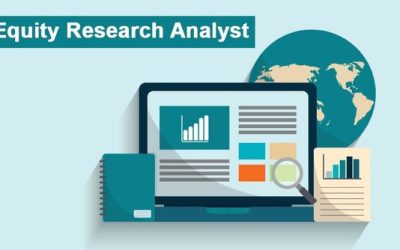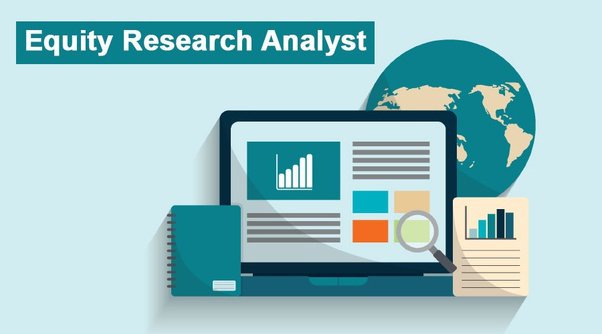Interview Samsung Fastcompany Jaeyeon Jung Smartthings
SmartThings Interview With Samsung VP Jaeyeon Jung
Jaeyeon Jung, VP and Head of SmartThings Team at Samsung Electronics, talks about some of the latest advancements in the Galaxy ecosystem. She explains how the new features help you track and find things that matter most to you. From the Universe Show tag that joins with your existing gadgets to the new System Savvy Tag that helps you configure your items, she explains how Samsung is creating an experience that will empower you. In this article, we will discuss about Interview Samsung Fastcompany Jaeyeon Jung Smartthings.
Also Read: interview fastcompany jaeyeon galaxy smartthings December
AI and the Internet of Things
With over 2.5 quintillion bytes of data being generated every day, the Internet of Things (IoT) is a powerful technology that allows devices to communicate with each other. This technology has the potential to revolutionize business and reshape the way people work.
The IoT ecosystem includes mobile phones and high-end computers, along with low-cost sensors that generate massive amounts of data. AI-powered IoT ecosystems analyze and summarize the data from one device before sending it to other devices, reducing vast volumes of data to a manageable size. This feature, called scalability, allows an IoT ecosystem to connect a large number of devices.
In the retail industry, for example, retailers use a number of data points from cameras and sensors to track customers’ movements and predict when they will arrive at the checkout line. This can then be used to recommend dynamic staffing levels that will reduce the time it takes for customers to complete their transactions and increase cashier productivity.
Many industries are experimenting with AI-powered IoT. For example, manufacturers are using smarter robots that are equipped with implanted sensors and artificial intelligence algorithms to improve user experience and design new business models.
Other examples include healthcare. Medical devices and wearables collect real-time health information, which can be analyzed by AI for health risk detection and treatment.
Another area where AI and IoT are making headway is energy management. For example, Nest’s smart thermostat uses AI to detect changes in users’ behavior and adjust the temperature.
The emergence of AI-powered IoT is helping businesses across the world to improve customer experience and design new business models. For instance, a factory that has embraced this technology can employ autonomous delivery robots to improve logistics. These robots can then make moment-to-moment decisions about where to go, what to do and how to avoid accidents and disruptions.
Shop-Igniter
The new Galaxy Smart Tag is the latest in a long line of IoT devices that have been designed to make life a little easier for consumers.
In the interview, Samsung VP Jaeyeon Jung explains the technology that the new Galaxy Smart Tag is built around and how the system will help shoppers.
The Cosmic System SmartTag is the first to offer a 360-degree view of any object using a combination of GPS, WiFi and Bluetooth low energy (BLE). This feature uses multiple sensors to provide an interactive experience and offers a unique shopping experience for users.
This computerized resource can be attached to just about any item, from clothing and jewelry to home goods and household items. It even has the ability to offer a guided shopping experience for its owner and even provides a shopping list to boot!
Likewise, the Cosmic Smart Tag boasts several other high-end features that include continuous data updates, an augmented reality overlay and a clever way to locate nearby objects.
However, the Galaxy Smart Tag may not be the most interesting or most useful device for your average consumer. A smart device that can be placed in a drawer or a closet may sound cool, but it isn’t the most practical option for many shoppers.
Despite its shortcomings, the new Galaxy SmartTag is certainly a step up from Samsung’s previous IoT offerings. In particular, the system uses a high-tech camera that is capable of shooting videos at a distance, so you can watch your favorite show on the go without having to miss it. In addition, it can be programmed to perform several tasks, including tracking your favorite music class or brewing up a cup of joe.
Cosmic System
Samsung’s vision for a “better future together” means connecting consumers with smart devices that suit their needs and preferences. This people-first approach reflects the company’s belief that technology can play a more meaningful role in everyday life, while also promoting sustainability.
During the keynote, Samsung showcased some of its next-gen products that aim to bring connected living experiences to the forefront. Among them is the all-new Samsung Home Hub, which combines six SmartThings services into one convenient device that helps users manage household chores and improve their daily lives. The new device also offers an integrated gaming platform and is slated to debut on the 2022 lineup of TVs, monitors and Family Hub refrigerators.
In an interview with FastCompany, Samsung Vice President and Head of Connected Home Jaeyeon Jung discussed the company’s commitment to making its products more open and integrating with other brands’ appliances. He said that Samsung is a founding member of the Home Connectivity Alliance (HCA), which brings together smart home appliance manufacturers to promote greater interoperability between their devices.
A Matter-certified Samsung SmartThings dongle will also come out later this month, and an over-the-air update for the SmartThings v2 hub will turn it into a Matter controller. Both will act as Thread border routers, letting you control any Matter devices over Wi-Fi and ethernet.
However, Jung also noted that Samsung doesn’t plan to add its own smart TVs and appliances to Matter as devices. Instead, it’s hoping that other devices, including LG’s smart appliances, will eventually become Matter-enabled in the future.
Regardless of which devices you end up adding to your smart home, the new Samsung SmartThings app on iOS will include support for the Matter protocol this week, which means that your iPhone-using housemates can set up routines. This is an exciting development that could help Matter become more widespread, but it remains to be seen if it will succeed or fail in the market.
Universe Show
During CES 2022, Samsung exhibited a series of products that helped minimize the environmental impact of home appliances and made smart home experiences more seamless. The company also highlighted its efforts to make a difference for the planet through its work with Patagonia.
In addition, Samsung showcased a plethora of lifestyle TVs and home appliances that enhance your quality of life. These technologies are all compatible with one another to create an ecosystem that makes your life easier and more connected.
The company also took the opportunity to showcase its latest collaboration with Resideo, a smart grid technology firm. The companies plan to integrate Samsung’s appliances with Resideo’s energy management solutions for a better energy experience. This collaboration is part of a larger Smart City Project, aimed at connecting customers with local energy programs in California and Texas.
With its new Matter hub, Samsung is looking to improve the experience of using multiple smart home devices through a single app. This means that it can integrate with both Apple HomeKit and Google Home, as well as countless other smart home platforms.
As a part of this partnership, Samsung has started integrating its SmartThings Hub software into select 2022 Smart TVs and Smart Monitors, which will act as a smart home command center in your home. This will help you control and automate all of your smart devices.
In addition, the SmartThings Hub will also double as a wireless charger, so you don’t have to worry about forgetting to charge your phone before putting it down for the night. It also supports a feature called multi-admin, which allows users to connect their Matter devices with various apps and platforms. This is a major step in making Matter-certified products available to more consumers.
System Savvy
System Savvy is a new SmartThings feature that joins with other devices to provide data on things around your home, such as lights and plugs. Its software interfaces with Cosmic System SmartTags and Universe Show SmartTags, as well as with other Samsung SmartThings products, to provide a complete view of what’s going on in your house.
For years, Samsung has tried to build an ecosystem around its own products and services, using partnerships as the glue that holds them together. It’s a strategy that’s worked to its advantage, especially for music fans, who can link their Samsung music account with Spotify, and enjoy songs on their phone, tablet, TV, and other smart devices.
But at its Galaxy Unpacked 2021 event in January, Samsung stepped it up a notch by introducing a whole new line of features and services that help make its hardware and the things it supports work better with each other. For example, it’s partnering with Google to bring Rich Communications Services (RCS) support to Samsung phones and tablets, making messaging experiences more like the ones you’re used to on iOS and Android.
That’s a good sign that the smartphone isn’t the only device driving innovation anymore, and that Samsung is taking an active role in shaping the ecosystem of the future.











